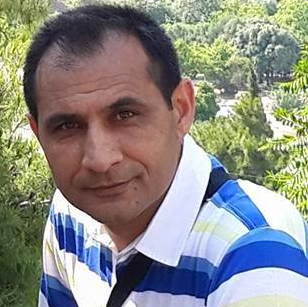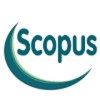Research Article
Review Article
Systematic Reviews and Meta Analysis
Systematic Reviews and Meta Analysis
1. Effects of Instructional Intervention Programs on Reading Skills of Students with Reading DifficultiesAim & Scope
Participatory Educational Research (PER)publishes research employing a variety of qualitative and/or quantitative methods and/or mixed approaches which take account of how participants can become involved in research processes in all areas of the education field amongst others inclusive education, curriculum issues and the like instructional technology, educational psychology, guidance and counseling, educational administration, science education, social science education… The aim of the journal is to increase understanding of participatory research relating to learning and teaching in pre-primary, primary, secondary, higher and adult education, and to contribute to the improvement of educational processes and outcomes. Articles on fine arts (such as painting, music) and physical education are out of the scope.
PER is an open access journal that publishes high-quality articles, in English. All articles published in PER will be peer-reviewed.
PER will be published six times a year (one volume per year), in January, March, May, July, September, and November starting from 2022.
Author Guidelines
PREPARATION
Word template
You need to download our Title Page and Full Text templates using the links below.
Title Page Template
Full Text Template
Usage of Templates
Please see page 9 of the PER General Guidelines. Click to see PER General Guidelines.
GENERAL GUIDELINES
Material must be original, reflect the integrity expected of scholarly communication, and demonstrate coherence and unity warranting that the paper is both understandable and interesting. Before submitting an article, please review the following suggestions.
Original manuscripts received in correct form serve to expedite the review process, others will be returned to author. Spelling, punctuation, sentence structure, and the mechanical elements of arrangements, spacing, length, and consistency of usage in form and descriptions should be studied carefully before submission.
Written manuscripts should be in English. Manuscript must conform to the style of the Publication Manual of the American Psychological Association (APA), 6th Edition. Manuscripts should be double -spaced, and font face must be Times New Roman 12 point. Paper Size must be A4 (21×29.7) (top, bottom, left and right 2.5cm space).
The article should be organized in IMRAD (Introduction, Method (Research design, Working group, Data collection tools, Data analysis, Experimental process, and Teaching environment [for experimental studies]), Result, Discussion and Conclusions) format.
Publication fee
Authors will not pay any fees for any of the related processes including the review process and the publication process.
Ethics in publishing
Authors of reports of original research should present an honest account of the work performed as well as a short discussion of its significance in the field of participatory educational research. Underlying data, and ways of interpreting these should be represented transparently in the paper. A paper should contain sufficient detail and references to permit others to judge the value of the work. Fraudulent or knowingly made inaccurate statements constitute unethical behavior and thus are unacceptable. Authors may be asked to provide the raw data in connection with their paper for editorial review and should be prepared to provide public access to such data (consistent with the ALPSP-STM Statement on Data and Databases), if practicable, and should in any event be prepared to retain such data for a reasonable time after publication. The authors should ensure that they have written entirely original works, and if the authors have used the work and/or words of others that this has been appropriately cited or quoted and should be underlined as part of acknowledgements. Multiple, redundant, or concurrent publications of an author is not acceptable as involving the sharing of the essentially same research in more than one journal or primary publication. Submitting the same manuscript to more than one journal concurrently constitutes unethical publishing behavior and is unacceptable. Authors are recommended to cite publications that have been influential in determining the nature of the reported work. Authorship should be limited to those who have made a significant contribution to the conception, design, execution, or interpretation of the reported study. All those who have made significant contributions should be listed as co-authors. Where there are others who have participated in certain substantive aspects of the research project, they should be acknowledged or listed as contributors. The corresponding author should ensure that all appropriate co-authors and no inappropriate co-authors are included on the paper, and that all co-authors have seen and approved the final version of the paper and have agreed on its submission for publication. All authors should disclose in their manuscript any financial or other substantive conflict of interest that might be construed to influence the results or interpretation of their manuscript. All sources of financial support for the project should be disclosed. Authors cannot make any change on the published manuscript electronically. Therefore, authors are obliged to be very careful reviewing and correcting any errors on galley proof.
Related to Plagiarism
Participatory Educational Research (PER) is a peer reviewed and indexed journal having ISSN 2148-6123, being published online since 2014. The journal is strictly against any unethical act of copying or plagiarism in any form. All manuscripts submitted for publication to PER are cross-checked for plagiarism using iThenticate software. Manuscripts found to be plagiarized during initial stages of review are out-rightly rejected and not considered for publication in the journal. In case of a manuscript that is found to be plagiarized after publication, the Editor-in-Chief will conduct preliminary investigation, possibly with the help of a suitable committee constituted for the purpose. If the manuscript is found to be plagiarized beyond the acceptable limits, the journal will contact the author’s Institute / College / University and Funding Agency, if there is any. A determination of misconduct will lead PER to run a statement bi-directionally linked online to the original paper, to note the plagiarism and provide a reference to the plagiarized material. The paper containing the plagiarism will also be marked on each page of the PDF. Upon determination of the extent of plagiarism, the paper may also be formally retracted.
Declaration of interest
Author/s declare that:
Author/s declare presence of Ethics Statements that needed for ethical conduct of research using human subjects. Otherwise, they provide the necessary documents.
a) Conflict of Interest: They have no conflict of interest.
b) Research involving human participants and/or animals:
This study does not contain any studies with human participants and/or animals performed by any of the authors.
Copyright
All published articles in PER are published under Creative Commons Attribution License (CC-BY 4.0). Please click here for details.
Ethical Principles and Publication Policy
Price Policy
Authors will not pay any fees for any of the related processes including the review process and the publication process.
Journal Boards
Publishing Board

Norma RA Romm (DLitt et Phil) is a Professor in the Department of Adult Education and Youth Development at the University of South Africa. She is author of The Methodologies of Positivism and Marxism (1991), Accountability in Social Research (2001), New Racism (2010), Responsible Research Practice (2018), People’s Education in Theoretical Perspective (with V McKay 1992), Diversity Management (with R Flood 1996), and Assessment of the Impact of HIV and AIDS in the Informal Economy of Zambia (with V McKay 2006). She has co-edited five books—Social Theory (with M Sarakinsky 1994), Critical Systems Thinking (with R Flood 1996), Balancing Individualism and Collectivism (with JJ McIntyre-Mills and Y Corcoran-Nantes 2017), Mixed Methods and Cross-Disciplinary Research (with JJ McIntyre-Mills, 2019) and Democracy and Governance for Resourcing the Commons (with JJ McIntyre-Mills and Y Corcoran-Nantes, 2019). She has published over 100 research articles on social theorizing, transformative research towards social and ecological regeneration, Indigenous paradigms of knowing, and the facilitation of adult learning. ORCID number: 0000-0002-1722-9720.


Özgen Korkmaz is a professor at the Faculty of Engineering and Natural Science at Bandırma Onyedi Eylül University. Dr. Korkmaz's area of expertise is educational technology. His research interests include computer education, programming education and thinking skills. He is also an expert in scale development.

Associate Professor Pinar Ayyildiz is a translator, sociologist and educational researcher. She has served Ihsan Dogramaci Bilkent University Vocational School of English Language Teaching as a teacher trainer for the Cambridge Diploma in Teaching English to Speakers of Other Languages (DELTA) diploma program and as an academic and administrative coordinator for a total of ten years along with multiple responsibilities. At the same institution, she completed the Cambridge In-service Certificate in English Language Teaching (ICELT) training program and the Cambridge Diploma in Teaching English to Speakers of Other Languages (DELTA) international diploma program. Having worked in various higher education institutions for more than twenty years owning duties like being an instructor of various undergraduate and graduate courses, director of the School of Foreign Languages, head of the Learning and Teaching Unit, and Dean of Students, she is now a faculty member and the Coordinator of the Learning-Teaching Development and Measurement-Evaluation Unit of Lokman Hekim University, Ankara, Turkiye. Ayyıldız's main research focus is located within the field of Educational Administration. She holds editorial responsibilities in a fair number of other international scientific publications such as Participatory Educational Research (PER), Philosophy and Theory in Higher Education (PTHE).
I am currently working as an Associate Professor in the Department of Educational Technologies at the Faculty of Education, Amasya University. My research interests include educational technology, electronic performance support systems, gamification, educational games, professional development, digital competencies, and qualitative research methods. I have published numerous research articles in national and international journals.
Editorial Board

Ondokuz Mayıs Üniversitesi Eğitim Fakültesi Matematik ve Fen Bilimleri Eğitimi Bölümü Fen Bilgisi Eğitimi Anabilim Dalı öğretim üyesidir.

He received his undergraduate degree from the Gazi Faculty of Education, Curriculum and Instruction Program in 1997, his master's degree from the same program at the same university in 2000, and his doctorate degree in 2004. He were appointed to assistant professor title in 2005, associate professor title in 2012 and prof.dr title in 2017. He currently works as a lecturer at Mersin University, Faculty of Education, Department of Basic Education.



(Prof. Dr.) Amasya University
Marcos Jesús Iglesias Martínez earned a PhD in Educational Research, Curriculum and Professional Development from the University of Alicante (UA), receiving the PhD Special Award. He is currently a senior lecturer in Didactics and School Organisation at the UA Faculty of Education. Winner of the DOCENTIA-UA Award for Teaching Excellence in multiple years. Coordinator of the practicum course on the Undergraduate Degree in Child Education. Member of the Qualitative Research Group in Education, Teaching and Learning (GICEDA) and of the UA Institute for Gender Studies Research. Former member of the Center for Qualitative Psychology at the University of Tübingen, Germany. Within the PhD Programme in Educational Research, he is in charge of the research line on Teacher Training and Learning. Former deputy coordinator of the UA Education Science Institute’s Networks for University Teaching. His lines of research are oriented towards initial training and professional development of teachers, designs of educational processes, gender, student and teacher mobility, Higher Education and qualitative research in education. He has published in different national and international journals in the field of Educational Sciences and regularly participates as a reviewer in different journals whose research topic is teacher professional development. He has directed several doctoral theses on teacher training with a qualitative approach. Likewise, he has been a collaborator, coordinator and principal investigator in various research and teaching innovation projects.

José Gijón Puerta is Associate Professor in the Department of Didactics and School Organization at the University of Granada.
He has a degree in Biology, a master's degree in Paleoanthropology-Human Evolution and a PhD in Pedagogy. He is director of the research group at the University of Granada Laboratory for Cognition, Health, Training and Interaction among Humans, Animals and Machines. He also currently directs the R+D+i Project National Research Plan Code PID2021-128774OB-I00 «Effects of the application of a dog-assisted activities program (AAP) on academic stress levels in university students»
Professor. Faculty of Education. UNED (Spain).
Department of Didactics and School Organization.










